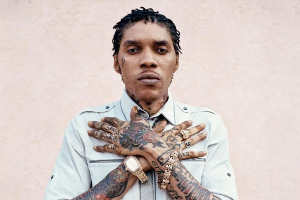 The court heard Kartel is in poor health after 13 years in custody
The court heard Kartel is in poor health after 13 years in custody
Jamaican dancehall artiste Vybz Kartel has been freed from prison after judges decided he should not face a retrial for murder.
The 48-year-old, real name Adidja Palmer, was jailed in 2014 but his conviction was overturned by UK judges in March.
He had been accused of killing Clive "Lizard" Williams in Jamaica but has always maintained his innocence.
Although his conviction was overturned months ago by the Privy Council in London, authorities in Jamaica had time to decide whether he should be retried.
On Wednesday, appeal judges in Jamaica decided the case would not go back to court, meaning Kartel, who is said to be in poor health, could be released.
His trial in 2014 heard that victim Clive Williams and another man, Lamar Chow, were given two unlicensed firearms belonging to Kartel for safekeeping.
When they failed to return them at an agreed time, prosecutors said they were summoned to Kartel's house in August 2011.
Chow told the trial they were attacked and the last thing he saw was Clive Williams - who was never seen alive again - lying motionless on the ground.
The house burned down days later and his body has never been found.
Kartel and his co-accused Shawn Campbell, Kahira Jones and Andre St John, have always maintained their innocence but were convicted and jailed for life, with Kartel told he would spend a minimum of 35 years in prison.
He appealed first to courts in Jamaica before taking his case to the Privy Council in London, which serves as the highest court of appeal in Jamaica and other Commonwealth countries.
His defence team argued that a juror accused of trying to bribe others should have been thrown off his trial.
The London court agreed with Kartel's case and ruled in March that the decision not to remove the juror made Kartel's conviction unsafe.
The judges said it was "fatal to the safety of the convictions which followed" and "an infringement of the [defendants'] fundamental right to a fair hearing".